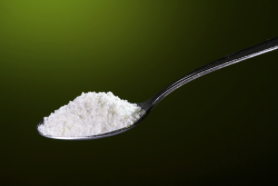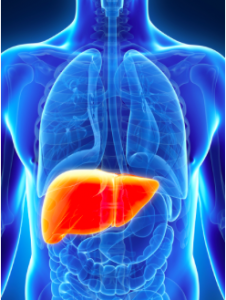Agave Nectar – Satan’s Syrup?
If you’re wondering around the health section at your local grocer, it will be hard not to find a product …

If you’re wondering around the health section at your local grocer, it will be hard not to find a product …
One of the most frustrating and damaging metabolic conditions a person can have is insulin resistance. On one end, insulin …
From boosting testosterone production & supporting lean muscle growth, to optimizing joint health & immune function, getting enough of this ‘essential’ mineral should be on your physique-building priority list. Here we take a close look at why you should think zinc, & give recommendations for getting the most out of this mega mineral…
By Roland Pankewich Read Part 1 HERE Read Part 2 HERE So far we have outlined some basic principles that …
Grocery shopping with health and fitness in mind can be a hassle. That is why in order to to minimize …
Key Point Summary: – There are 5 ‘levels’, or stages, you must implement IN ORDER to optimize fat loss. – …
What if I told you there was a starch that increased insulin sensitivity, preserved muscle, and helped burn body fat? …
Of the major neurotransmitters, acetylcholine just might be the most important from a muscle building standpoint. As a major neurotransmitter …
There is no need to go into detail about how important shoulder development (specifically deltoids) is to a complete physique. …
So you’ve dieted hard, and trained even harder. Your mind and your body have been battered and depleted from the …
In this eye-opening article, Ben gives a breakdown of what cardio ‘actually’ is, and how the application of this newfound knowledge could dramatically accelerate your progress. Don’t do another cardio session until you learn this simple fact…
Post-training is your most insulin sensitive time of day and the time when your body can use carbs the most …
One of several so called, “super-supplements”, to have hit shelves over recent decades is glutamine, the most abundant amino acid produced by our body, one that is found in almost all animal food products. A so-called conditionally essential amino acid (meaning the body can produce enough of it to support health under normal circumstances; for example, in the absence of serious illness, burns, prolonged stress or significant training-induced muscle damage), glutamine, 70 percent of which is manufactured internally in skeletal muscle tissue, helps to keep our many bodily systems functioning as they should (1, 7, 9).
While much of our glutamine supply can be derived through good nutrition and be produced internally, many people choose to supplement with it in hopes of significantly boosting their glutamine levels as a means to reap more of this amino’s many benefits. However, prevailing research into the effectiveness of supplemental glutamine suggests that few, if any, direct muscle building benefits can actually be experienced when using it (4,7). Thousands of athletes worldwide (bodybuilders or otherwise) have though reported remarkable progress when supplementing with glutamine, so just how might supplemental glutamine work to enhance our training progress? Keep reading as I attempt to separate fact from fiction.
The body’s internal healer
Our internal glutamine supply is largely produced in skeletal muscle tissue from which it is transported to, and stored primarily in, the small intestine, and white blood cells and kidneys (7). Created when the non-essential amino acid glutamate is degraded, and combined with nitrogen-containing ammonia molecules, glutamine benefits health by transporting nitrogen (a compound found in protein which provides an indication of our body’s amino acid status) between tissues to promote healing, cell growth and tissue repair while removing excess ammonia (a nitrogenous waste product which can be toxic to our bodily tissues) (3, 9). In fact, up to 35 percent of circulating nitrogen due to protein breakdown is transported as glutamine. Thus, internally-produced glutamine plays an important role in muscle protein synthesis.
Known among many bodybuilders as a critical component of the muscle growth process, the potently anti-catabolic glutamine is this and much more. However, in supplemental form it may not provide the bang for buck its consumers expect, as we will soon see.
 Involved in the regulation and synthesis of muscle protein, sufficient glutamine also prevents the cannibalism of muscle tissue which may occur when it is preferentially drawn upon to support the repair of other tissues. During intense workouts, and in the aftermath of muscle trauma and other kinds of tissue injury, our muscles are more rapidly depleted of glutamine, making its supply essential at such times. Besides transporting nitrogen, as discussed, glutamine is also a carbon donor, meaning it helps to restore glycogen to boost our energy levels (2, 7). In addition, glutamine enhances immune function (6), water transportation, neurotransmission, elevates growth hormone levels and, perhaps most important of all (for those supplementing with it) supports gastrointestinal health (9, 12).
Involved in the regulation and synthesis of muscle protein, sufficient glutamine also prevents the cannibalism of muscle tissue which may occur when it is preferentially drawn upon to support the repair of other tissues. During intense workouts, and in the aftermath of muscle trauma and other kinds of tissue injury, our muscles are more rapidly depleted of glutamine, making its supply essential at such times. Besides transporting nitrogen, as discussed, glutamine is also a carbon donor, meaning it helps to restore glycogen to boost our energy levels (2, 7). In addition, glutamine enhances immune function (6), water transportation, neurotransmission, elevates growth hormone levels and, perhaps most important of all (for those supplementing with it) supports gastrointestinal health (9, 12).
Why supplement with glutamine?
Maintaining glutamine levels sufficient to promote continuous healing and performance benefits is no easy task. For hard training athletes, glutamine is involved in a plethora of processes which lead to its depletion. For example, the kidneys use a considerable amount of glutamine simply ridding the body of ammonia in an attempt to restore our acid-base balance (12). The harder we train and the more protein we consume, the greater this metabolic acidosis, and the more glutamine that is needed by the kidneys to restore the balance. Fortunately, the body is constantly increasing its supply to keep up with demand for not only this, but many other internal processes. Many have taken to consuming supplemental glutamine to bolster their natural supply.
For bodybuilders and other athletes, there is however little evidence to suggest that supplementing with glutamine will support direct muscle building or boost performance in any significant way. In reality, up to 90 percent of all ingested glutamine (regardless of its form) is eliminated during first pass (the point at which a substance’s effects may be greatly reduced before it reaches systemic circulation) (7). Only a small amount of the glutamine we consume will make it past that detoxifier of all ingested substances, the liver, with almost all of it being eliminated by the digestive enterocytes (intestinal absorptive cells) and immune cells within the gut. Indeed, the excellent results many glutamine users have reported may more readily be attributable to glutamines gut health benefits than any other factor. Or, it could simply be the placebo effect and/or other changes they have made to their existing training regime while concurrently taking glutamine (increased protein consumption etc).
Illness, disease, starvation or fasting, rapid growth and development, intensive training, and other conditions of severe stress significantly deplete the body’s glutamine reserves (3). It is under such conditions that supplementing with optimal dosages of glutamine may be wise. Combined with such extreme physiological stress, is the competition among the many  systems of the body for glutamine support. Once these uses (for example nitrogen transport, protein synthesis and immune function) begin to outpace our body’s ability to produce glutamine, we may begin to show signs of glutamine deficiency, which may include low energy, muscle wasting, and increased susceptibility to infection and illness. However, as mentioned, much of the supplemental glutamine we ingest does not reach its intended destination. But this does not mean glutamine supplementation is worthless and wasteful. To boost supplemental glutamine uptake we may take between 30-40 grams of it per day (in divided doses of 5 to10 grams). The small amount that does get through will still provide some health benefits but is unlikely to produce the next Mr. Olympia, or a world class athlete, anytime soon. The real benefit of glutamine supplementation lies in its ability to improve gut health (8, 10, 11).
systems of the body for glutamine support. Once these uses (for example nitrogen transport, protein synthesis and immune function) begin to outpace our body’s ability to produce glutamine, we may begin to show signs of glutamine deficiency, which may include low energy, muscle wasting, and increased susceptibility to infection and illness. However, as mentioned, much of the supplemental glutamine we ingest does not reach its intended destination. But this does not mean glutamine supplementation is worthless and wasteful. To boost supplemental glutamine uptake we may take between 30-40 grams of it per day (in divided doses of 5 to10 grams). The small amount that does get through will still provide some health benefits but is unlikely to produce the next Mr. Olympia, or a world class athlete, anytime soon. The real benefit of glutamine supplementation lies in its ability to improve gut health (8, 10, 11).
Improving digestive wellness by restoring the integrity of the gut lining could be the single most important step we can take to improve our health and maximize the muscle building process. Without proper digestion, the absorption of nutrients may be limited and our immune system may be weakened. An important function of the gut is to prevent the migration of
various toxins and/or bacteria into systemic circulation (10).
Intestinal water absorption also ensures optimal hydration of the whole body. Both of these processes can be severely  compromised due to a deterioration of the intestinal barrier resulting from a lack of glutamine (10, 11). Indeed, optimal
compromised due to a deterioration of the intestinal barrier resulting from a lack of glutamine (10, 11). Indeed, optimal
glutamine levels improve the efficiency of the entire digestive process to enhance nutrient absorption, reduce allergies, increase immunity, and improve mental wellbeing (especially given glutamine’s positive effect on the cells of the mouth, pancreas, liver and esophagus) (9, 12).
Glutamine can be taken on an empty stomach one hour before meals, or with carbohydrate rich meals, to enhance glucose utilization. As well as supplementing with hefty doses of glutamine to ensure a degree of absorption, we can boost our dietary intake of this amino by consuming foods rich in it. These include: plant and animal proteins such as beef, pork and poultry, cabbage, milk, cottage cheese, yogurt, ricotta cheese, raw parsley, and raw spinach (11).
Is glutamine for you?
While it has been determined that glutamine’s direct muscle building benefits are few, this conditionally essential amino can promote lean muscle gains through the restoration and strengthening of gut health. Taken in doses 3-4 times in excess of those typically recommended may enable more glutamine to be absorbed to bolster our immune system, while supporting muscle protein synthesis and lean muscle growth (7). Whether supplemented via powder, capsule, or tablet, free-from L-glutamine is the best, most stable version, while poor delivery forms of glutamine include n-acetyl-l-glutamine or alpha-ketoisocaproyl-glutamine (and that contained in ready to drink beverages and protein bars) (7). And while 30-40g of glutamine per day in divided doses is recommended in this article for gut health primarily, and secondarily to ensure enough of it is absorbed to produce some positive muscle building benefits, daily doses of up to 50g or more have been assessed to produce no adverse effects (5). Glutamine, if taken as recommended above, is unlikely to produce any negative side effects. Though it may not dramatically transform your physical development and performance, supplemental glutamine will, if taken correctly, provide some important benefits, and it is on this basis that its consumption is recommended.
References